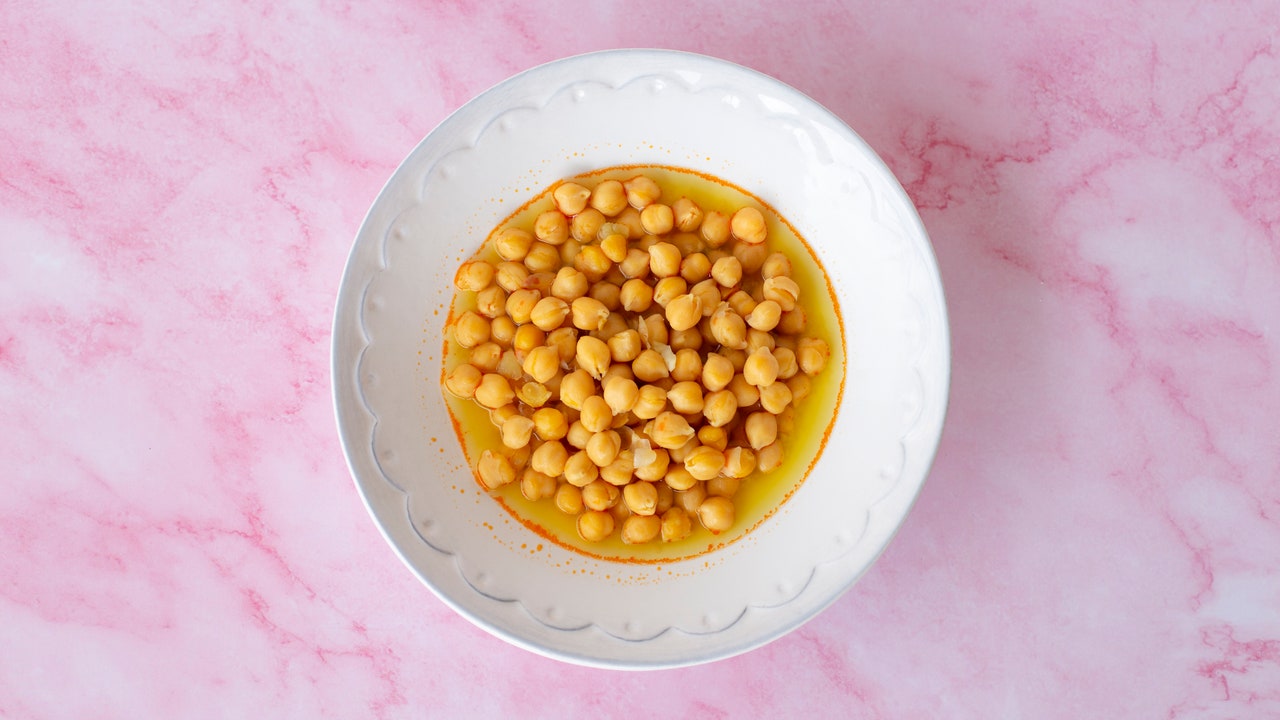If you are not adding a handful of chickpeas to your daily salad, consider this a sign. After all, the benefits of eating chickpeas are numerous—not only are the ubiquitous Mediterranean legume rich in fiber and protein, but they may also help us maintain a healthy body weight and even contribute to longevity.
Dr. Olivier Courtin-Clarins, director of the Clarins Group, makes a strong and convincing case for the benefits of eating chickpeas and other legumes in his book Beauty In My Plate. Some of the most fascinating? The little bean’s ability to promote fat loss and help us age better.
Referring to the results of six clinical studies that suggest that the consumption of legumes reduces the percentage of fat in the body, Courtin-Clarins says that “including legumes in the diet allows a slight decrease in weight without restricting caloric intake” and notes that their high fiber and protein content make them a satiating food that can contribute to weight loss.
Fiber and anti-aging
The high fiber content of chickpeas and other legumes may also promote healthy aging. “A study carried out for more than 10 years shows that people who eat more fiber are twice as likely to age better than the rest of the population,” the doctor points out in his book.
This is because the whole body benefits from eating a high-fiber diet rich in plant foods like legumes. Studies have found that consuming adequate levels of fiber reduce inflammation, strengthen the immune system, improve joint health, and lower the risk of cancer, Alzheimers, and much more. In fact, some studies have even found that there is an increased “risk of accelerated aging among U.S. women and men who do not consume adequate amounts of dietary fiber.”
The nervous system and balancing fluid retention
The pharmacist and nutritionist Paula Martín Clares also sings the praises of chickpeas in her book Healthy Skin Comes From What You Eat. She stresses that they are an excellent source of protein, calcium, potassium, iron, phosphorus, magnesium, vitamin B6, and vitamin E. “They also protect us against water retention, helping us to balance body fluids,” she points out, adding that they are great for reducing blood cholesterol levels, regulating the digestive system, and blood sugar levels. They even promote the proper functioning of the nervous system. As nutritionist Beatriz Larrea confirms, “they are energizing and essential for a healthy body and mind.”
Ideas for adding chickpeas to your diet
Whether eating chickpeas can help you lose weight will have a lot to do with the way they are cooked and the foods they are accompanied with. Larrea advises eating them with grains to create “complete proteins” with all eight essential amino acids. If you plan to cook your chickpeas, Courtin-Clarins advises letting the legumes soak for two hours before cooking to reduce the production of gasses. “You can even add thyme or kobu seaweed to the cooking water to lessen the potential discomfort,” he adds. Canned chickpeas can be a good alternative, as long as they contain—as nutrition coach Natàlia Calvet explains—only the main ingredient along with water, oil, or a little salt, and no other unnecessary additions. It is also important to wash canned chickpeas well and drain them before cooking. As for ways to include them in the diet in a healthy way, here are some ideas:
- Blend with tahini, lemon juice, and olive oil to make hummus and serve with vegetable crudités.
- Add to salads with quinoa, vegetables, spinach, and avocado for a complete meal balanced with healthy fat and protein.
- Cook in a stew with prawns, bell pepper, garlic, and tomato for a savory, hearty dinner.
- Roast in the oven with spices such as cumin and turmeric to top salads and other dishes.
Read the full article here




